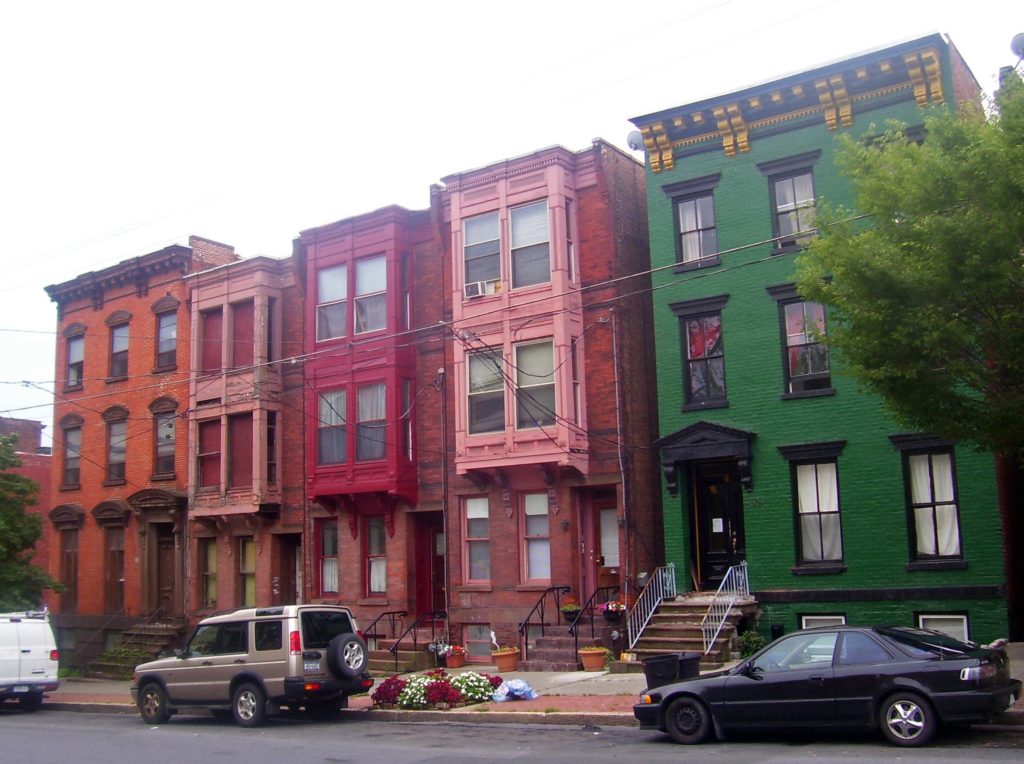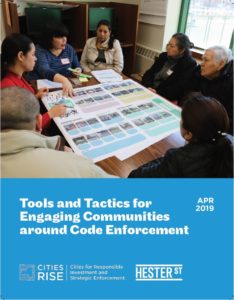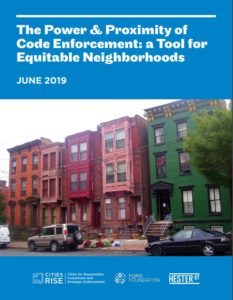The New York State Attorney General launched Cities for Responsible Investment and Strategic Enforcement (Cities RISE) in 2017 to build the capacity of municipalities to deal with the aftermath of the housing crisis by using housing and community data in order to better address and transform problem properties. Project partners identified a need for technical assistance and capacity building to support equitable code enforcement decisions and to set municipalities up for success in partnership with community members.
In Phase One of the project, Hester Street worked to better understand the way equity choices play out in different code enforcement scenarios and city contexts, and how they affect the way in which the city addresses issues like foreclosure, abandonment and the disparate impacts of code enforcement on low-income communities of color. We conducted stakeholder interviews with code enforcement staff, public agency staff and representatives of community-based organizations in 4 of the participating cities. Drawing on this set of engagements, Hester Street developed a framework for identifying equity choice points in cities’ code enforcement processes and systems for advancing equitable community engagement in housing and code enforcement work. This framework includes:
– a process map to identify strengths, pain points and opportunities for equity in the code enforcement processes
– a set of principles for equitable code enforcement
– a set of best practices in and outside NYS that advance equity and engagement in code enforcement
In 2018, we embarked on Phase Two of the project in collaboration with Harvard University’s Ash Center for Democratic Governance and Innovation and the government technology firm Tolemi. We expanded our work to support 32 agencies across 10 upstate NY cities to build their capacity to engage communities and incorporate feedback into code enforcement practices in order to make them more equitable, just and inclusive. Our team will make 50 site visits across NY state between December 2018 and August 2019 to further support cities in conducting meaningful and inclusive engagement processes and to reach resident groups disproprotionately impacted by inequitable code enforcement, such as renters, communities of color, immigrants, senior citizens and people with disabilities.
For this purpose, Hester Street has put together a toolkit to help cities have engaging conversations around code enforcement and housing. This toolkit includes a public education brochure, engagement tools and a manual to guide cities in putting together inclusive and effective community events. In addition to including communities in the conversation around code enforcement, our technical assistance also supports cities as they create a planning process to re-envision how they tackle code enforcement issues in an equitable way. Subsequently, cities will be able to apply for an innovation grant of up to $1 million dollars from the NYS Attorney General’s office to implement these key changes through 2020.


